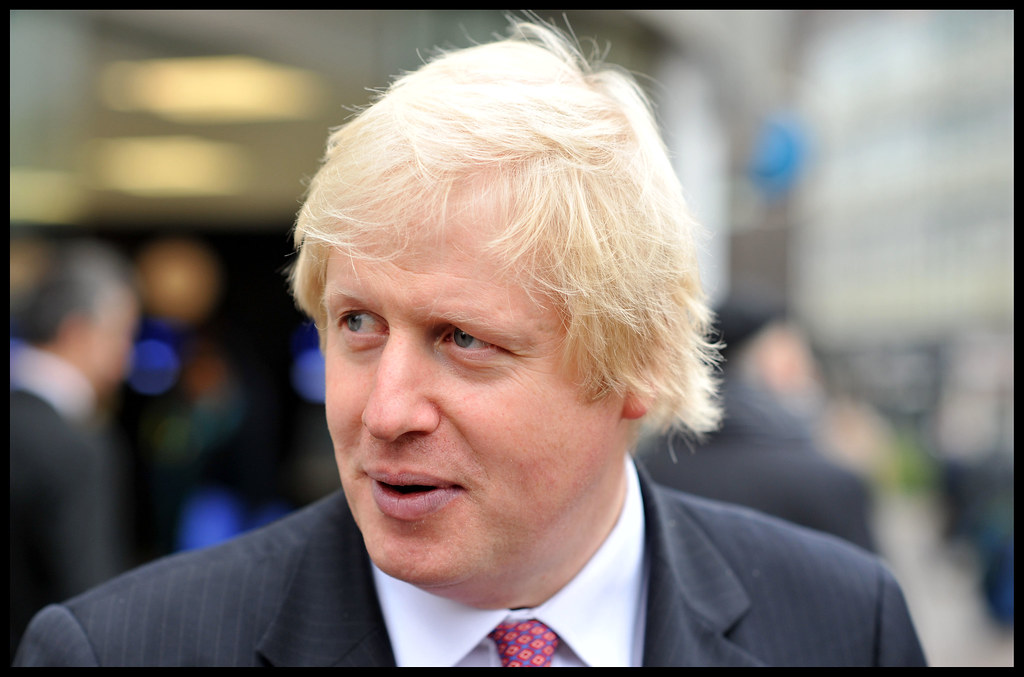British PM Johnson demands an election, opponents demand a block on no-deal Brexit

- Country:
- United Kingdom
British Prime Minister Boris Johnson on Wednesday demanded an Oct. 15 snap election, but lawmakers vowed to block his attempt until they could pass a law preventing a departure from the European Union without an exit deal.
Parliament's bid to tie Johnson's hands leaves Brexit up in the air, with possible outcomes ranging from a turbulent no-deal EU exit to abandoning the whole endeavor - both outcomes that would be unacceptable to swathes of the United Kingdom's voters. An alliance of opposition lawmakers backed by 21 rebels from Johnson's Conservative Party defeated the government on Tuesday on a motion allowing them to try to pass a law that would force him to request a three-month delay to Britain's EU exit date.
Johnson vowed never to delay Brexit beyond the currently scheduled date of Oct. 31 and challenged opposition Labour Party leader Jeremy Corbyn to agree to an Oct. 15 election. "Can I invite the leader of the opposition to confirming... that if that 'surrender bill' is passed, he will allow the people of this country to have their view on what he is proposing to hand over in their name with an election on October the 15th?" Johnson told parliament.
However, he needs the backing of two-thirds of lawmakers, and opposition parties are united in wanting to prevent a 'no-deal' Brexit before agreeing to an election. The second most powerful man in the Labour Party, John McDonnell, said the no-deal blocking legislation had to get assent from Queen Elizabeth, putting the law into effect before the party would agree to an election. This could, in theory, happen next Monday.
As the three-year Brexit crisis approaches a crescendo, Britain appears to be edging towards an election as most politicians see no other way to break the impasse. The lower house of parliament was due to vote on the bill to block a 'no-deal' exit and possibly also on Johnson's bid for an election from around 1800 GMT. The bill would then also have to be debated on Thursday in the upper house, the House of Lords.
Sterling, which tends to rise when the prospect of a 'no-deal' Brexit recedes, jumped 1% against the dollar to trade above $1.22 for the first time since Aug. 30.
BREXIT HANGS IN BALANCE
With trust in Johnson in short supply, opposition parties and Conservative rebels said they would not allow a 'no-deal' Brexit to be "smuggled" through under the cover of an election. "We're ... not going to be tricked or conned by Johnson so we're looking at every way in which, having secured the legislation, he can't wriggle out of abiding by the law and implementing it," McDonnell said.
"At the moment, there's nothing that Johnson has done in recent weeks that gives us confidence he's going to abide by the law." Beyond the frantic push and shove of British politics, the United Kingdom fundamentally has three main Brexit options: to leave with a deal, leave without a deal or cancel Brexit.
An October election would open up three likely options: a Brexit-supporting government under Johnson, a Labour government led by veteran socialist Jeremy Corbyn, or a hung parliament that could lead to a coalition or minority government of some kind. The type of Brexit that will emerge from that election is unclear, though there would be little time to negotiate any deal before the Oct. 31 deadline.
A new, avowedly pro-Brexit government could also overturn any law passed by the current parliament aimed at preventing a no-deal Brexit. In a sign of just how far Brexit has distorted British politics, Johnson's Conservatives said on Tuesday they were expelling the 21 rebels - including the grandson of Britain's World War Two leader Winston Churchill and two former finance ministers - from the party. Hours earlier, Johnson had already lost his working majority as one of his lawmakers defected.
In one piece of good news for Johnson, the face of the 2016 Vote Leave referendum campaign, a Scottish court ruled that his decision to suspend parliament later this month was lawful. Johnson said his strategy was to secure a divorce agreement with the EU before an EU summit on Oct. 17, and "get Brexit done". He said the British government was making substantial progress and would succeed in removing the Irish border 'backstop'.
"This government is going to get a deal from our friends in Brussels," Johnson said. "We will get an agreement." The EU has refused to renegotiate the Withdrawal Agreement reached with Johnson's predecessor Theresa May last November.
In Brussels, British and EU diplomats made clear on Wednesday that there was no immediate prospect of substantive negotiations on an EU divorce deal as Britain's new negotiator, David Frost, arrived for talks. And Ireland said Johnson had not yet presented any solutions to address the backstop - the toughest part of the Brexit impasse, concerning checks on the land border between the Irish Republic and the British province of Northern Ireland.
There were reports in British newspapers that Johnson's top adviser Dominic Cummings had described negotiations as a sham. When asked on Wednesday if that was how he saw the Brexit negotiations with the EU, Cummings told Reuters: "No. I never said that."
Also Read: UK's Boris Johnson puts his feet up in Macron's palace
(This story has not been edited by Devdiscourse staff and is auto-generated from a syndicated feed.)










